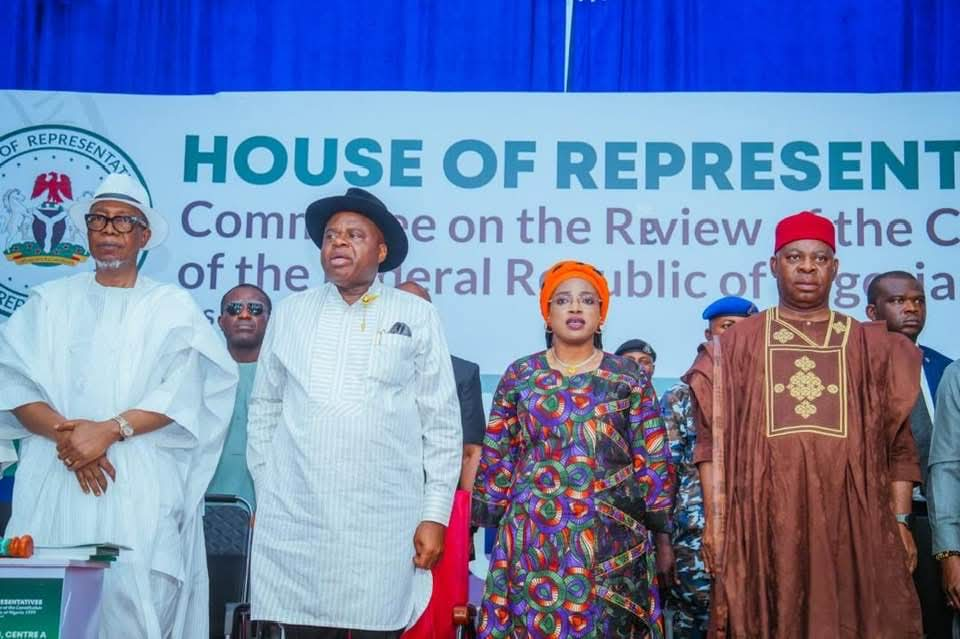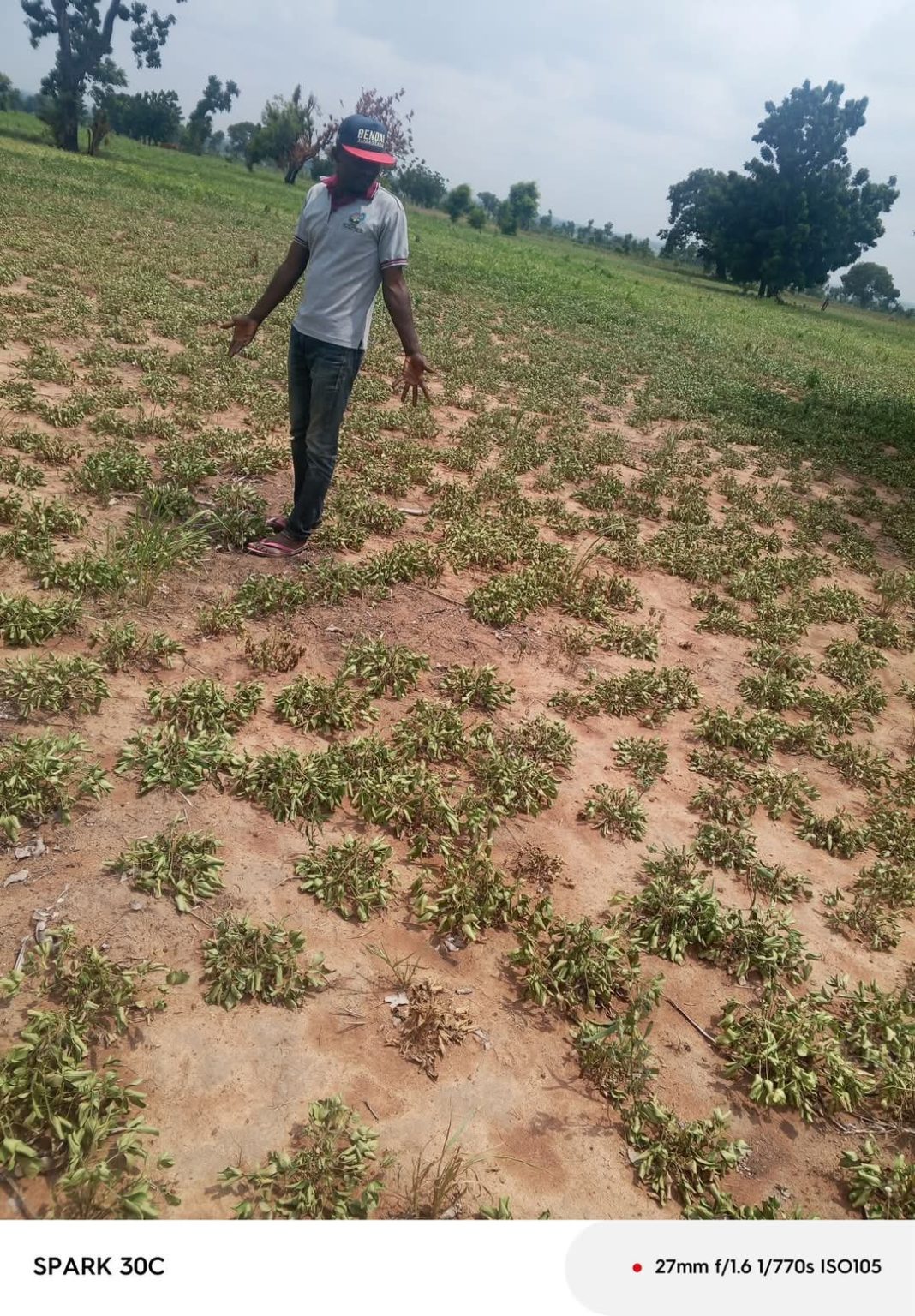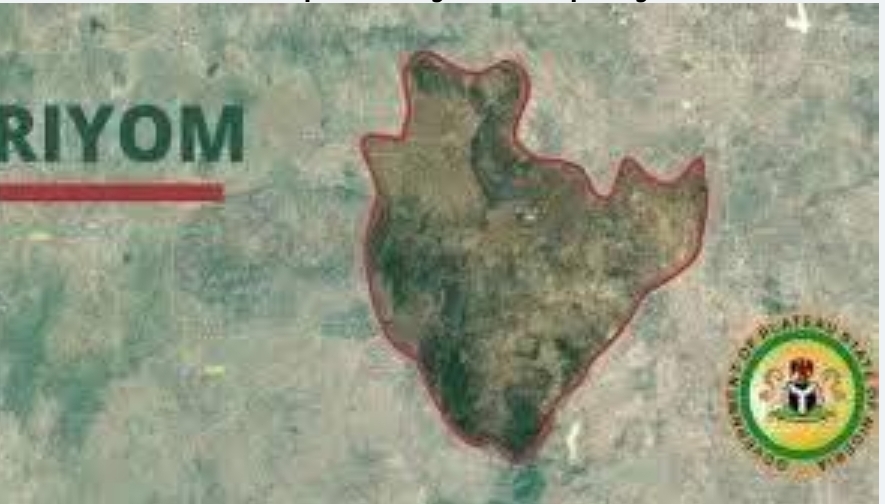Amgbare Ekaunkumo, Yenagoa
Bayelsa State has proposed the creation of 25 additional local government areas (LGAs) to add to its existing eight, highlighting the strain of overpopulation in some LGAs, with certain areas hosting over 150 communities.
The state also advocated for fiscal federalism, the establishment of state police, and sweeping electoral and judicial reforms during a public hearing on the 1999 Constitution review.
The event, organized by the South-South Centre A (Bayelsa, Delta, and Edo) of the House of Representatives’ Committee, took place at the DSP Alamieyeseigha Banquet Hall in Yenagoa on Saturday.
The Bayelsa State Attorney General and Commissioner for Justice, Mr.Biriyai Dambo, presented the state’s position, stressing that the proposed LGAs, already created by the Bayelsa State House of Assembly under Section 8(3) of the 1999 Constitution (as amended), are financially viable.
He emphasized that Bayelsa has the resources to sustain the new councils, which are intended to address administrative and developmental challenges caused by overpopulated LGAs.
On fiscal federalism, Bayelsa urged that states gain full control over their onshore and offshore natural resources, proposing a revenue-sharing model where states retain 60% of resource-derived income and remit 40% as tax to the federal government.
Dambo noted that the creation of new councils would enhance service delivery and representation in underserved communities, particularly in rural areas where access to government resources remains limited.
He cited examples of LGAs struggling to manage large populations, which has hindered effective administration and infrastructure development.
The state also strongly supported the creation of state police, arguing it would bolster security and crime-fighting capabilities, aligning with the principles of true federalism.
Bayelsa further called for reforms to grant greater local government autonomy, revise the exclusive and legislative lists, strengthen the Independent National Electoral Commission, and overhaul the judicial system.
Governor Douye Diri emphasized the necessity of constitutional amendments to reflect the evolving aspirations of Nigerians. “A robust democracy hinges on the people’s right to amend the Constitution, ensuring it remains a dynamic instrument responsive to our needs,” Diri said.
He underscored Bayelsa’s commitment to a federal system that is equitable and addresses historical injustices in resource allocation and LGA distribution, promoting holistic development across the Niger Delta and Nigeria.
Representatives from Delta and Edo states, including Delta’s Deputy Governor, Sir Monday Onyeme, and Edo’s Attorney General, Samson Osagie, endorsed the review process, describing the 1999 Constitution as controversial and in need of updates to address its gaps.
They expressed optimism that the exercise would strengthen Nigeria’s democratic framework.Prof. Julius Ihonvbere, Majority Leader of the House of Representatives and chairman of the South-South Centre A Committee, assured attendees that all submissions would be meticulously reviewed and forwarded to the full Constitution Review Committee for deliberation in the House.
He highlighted the importance of stakeholder engagement in fostering a more inclusive and participatory democracy.
The hearing saw the presence of prominent figures, including Dr. Gloria Diri, wife of the Bayelsa governor, Deputy Governor Senator Lawrence Ewhrudjakpo, federal lawmakers such as Dr.
Fred Agbedi (Sagbama/Ekeremor), Mrs. Marie Ebikake (Nembe/Brass), Dr. Mitema Obordor (Ogbia), and Rodney Ambaiowei (Southern Ijaw), as well as Bayelsa State House of Assembly Speaker, Rt. Hon. Abraham Ingobere, and his Delta counterpart, Emomotimi Guwor. Traditional rulers, including the Amanyanabo of Twon-Brass, King Alfred Diete-Spiff, and the chairman of the state traditional rulers council, King Bubaraye Dakolo, also attended.Bayelsa’s push for additional LGAs stems from the need to address developmental disparities and improve governance at the grassroots level.
The state’s advocacy for state police and fiscal federalism reflects growing regional demands for decentralization.
Bayelsa argued that state-controlled police forces would be better equipped to address localized security challenges, such as militancy and oil theft, which have plagued the Niger Delta. By retaining a larger share of resource revenue, the state believes it can fund critical infrastructure and social programs, reducing dependence on federal allocations and fostering economic self-sufficiency.





